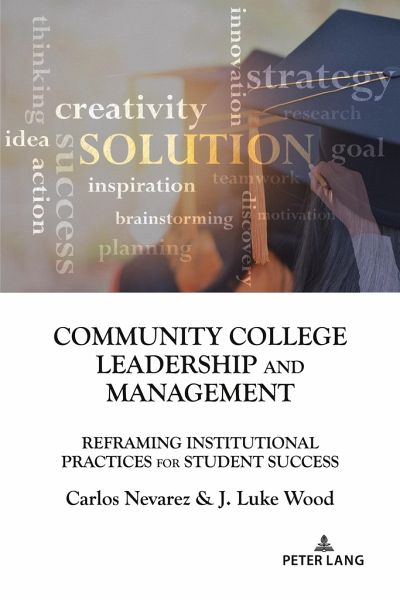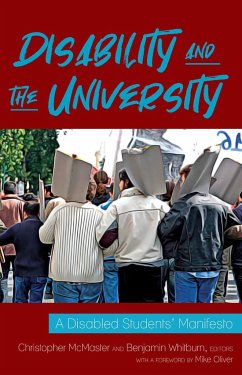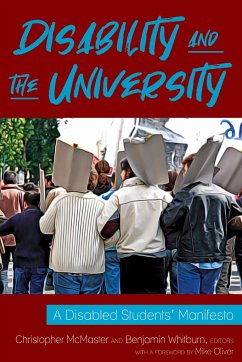
Community College Leadership and Management
Reframing Institutional Practices for Student Success
Herausgegeben: Brown II, Christopher
Versandkostenfrei!
Versandfertig in 6-10 Tagen
61,80 €
inkl. MwSt.
Weitere Ausgaben:

PAYBACK Punkte
0 °P sammeln!
Community College Leadership and Management places emphasis on reframing college practices in order to advance student success. This calls for leaders to be well versed on promising strategies which have illustrated evidence in advancing academic success. Such practices include intrusive academic advising, exit interviews with dropouts and graduates, and the use of technology to supplement face-to-face academic counselor advising. These leaders are aware of and welcome the challenges and opportunities a changing student population presents to community colleges. The authors critically analyze ...
Community College Leadership and Management places emphasis on reframing college practices in order to advance student success. This calls for leaders to be well versed on promising strategies which have illustrated evidence in advancing academic success. Such practices include intrusive academic advising, exit interviews with dropouts and graduates, and the use of technology to supplement face-to-face academic counselor advising. These leaders are aware of and welcome the challenges and opportunities a changing student population presents to community colleges. The authors critically analyze and call for a deconstruction of conventional practices and the construction of new approaches to understand how student success is envisioned. For example, a redefinition of what constitutes student success is advanced. A redefinition of student success-as the attainment of an academic, vocational, career, or personal goal-is put forth. This broader perception, definition, and meaning of student success is not limited to or constrained by an accountability paradigm. It is driven by the need to capture a more complete picture of the trajectory of contemporary and traditional enrollees from increasingly diverse backgrounds: students whose goals do not fit solely and neatly into two traditionally dominant outcomes like graduation and transfer. It is the role of community college leaders to affirm, inculcate, and communicate this more nuanced definition, allowing it to guide the vision and mission, programs, policies, and practices of the institution. Carlos Nevarez and Luke J. Wood support their arguments through various models, frameworks, research findings, case studies, and presentation of self-reflective questions aimed at advancing reflective community college scholar-practitioners.














